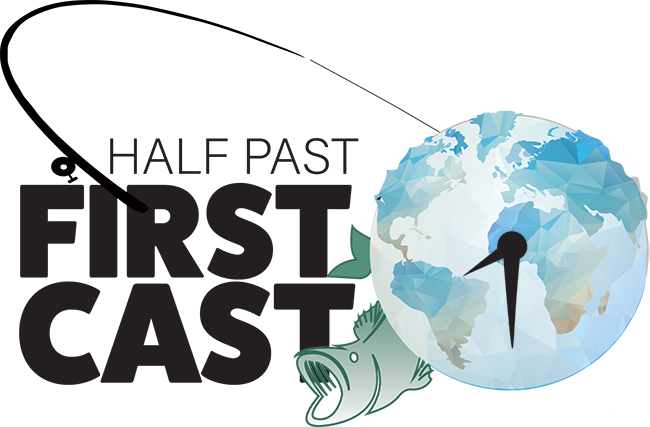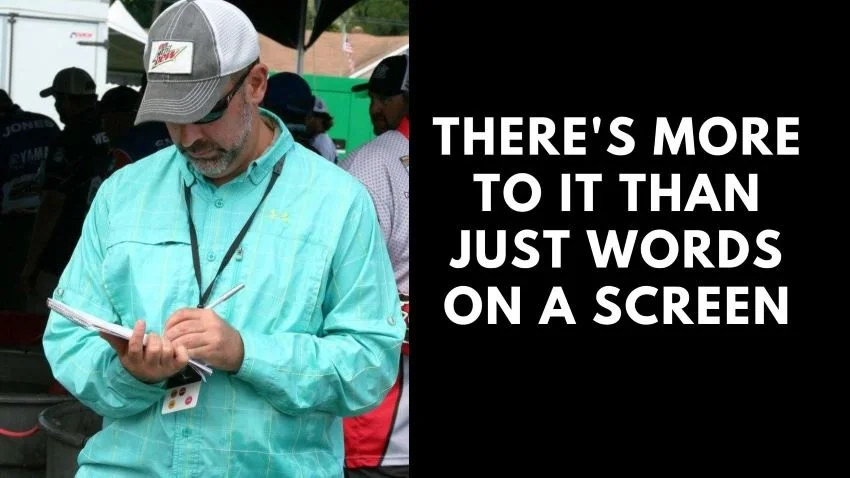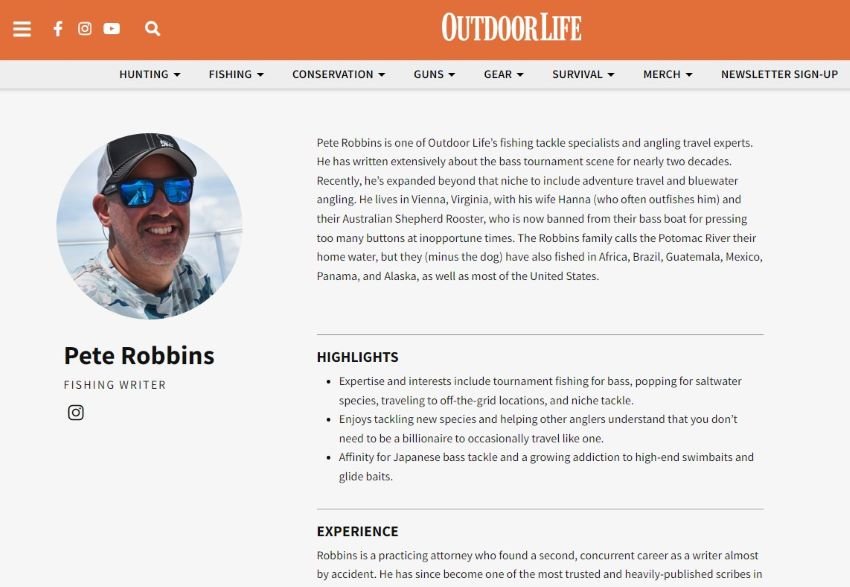Five Mistakes I’ve Made as a Fishing Writer
To the best of my knowledge, when I started writing articles about fishing two decades ago there were no guidebooks or courses on how to turn it into a career. I’m pretty sure that’s still true today, and most of the articles I find on the web are long on generalities and short on the good stuff that’ll actually help you. I’ve tried to fill that gap by writing about some of the lessons I’ve learned on my own, as well as those passed down from mentors. Nevertheless, I haven’t written much about the mistakes I made along the way. Some of them were avoidable, some of them were plain dumb, and most if not all of them benefited me in the long term. I hope that by sharing some of them I can help any aspiring writers (even if they work in fields outside of fishing and the outdoors) get to their desired destination more quickly.
First, the Good News
Fortunately, my training as a lawyer – and particularly the law school years and the subsequent six years working at an awful law firm – taught me that while doing good work is paramount, it’s also critical to be able to take on a large volume of work. Just when you think you’ve hit your rev limiter, you should be able to take on one or two more things. My career as a writer was and is in addition to the full-time practice of law, yet early on I was incredibly hungry for assignments and would take anything that would move the career forward. Not only did that help me get early feedback, but it built up a muscle memory that helps me today. I can pump out far more (and I believe better) writing per day or per week than I could 20 or even 10 years ago.
The other part of that early process that benefited me greatly was the willingness and ability to network. Even today, writing that strikes me as odd because in the practice of law I’ve always resisted networking. I’m an introvert. Being around people drains me. Asking for favors or asking for chances doesn’t come easily to me, yet I stepped outside of my comfort zone and built a huge network or friends, contacts, mentors and confidantes across the country who have helped me get to this point. Put yourself out there. Unless you’re Wright Thompson or Jeff Pearlman, no one is going to come to you to write something, and those guys are still hustling their asses off long after they’ve proven a need to do so.
Five Mistakes I’ve Made (some of them repeatedly)
I’m not enough of a Polyanna to stop with the positives listed above. Overall, I’m thrilled with the trajectory my efforts have taken, and I love what I do, but I’m far from flawless. Here are five missteps I’ve made that you should carefully consider if you’re just starting out:
Multiple Media – Early on, I was haughty enough to believe that as a writer I didn’t need to pursue skills outside of that narrow silo, like photography. Thus, while I’ve given myself a very remedial education in what editors and webmasters want, I’ve never made photography a priority. That has been a huge mistake – I’m sure it has prevented me from getting some jobs, and created an opportunity cost in other instances. Usually the publications can come up with something, but on occasion I’ve even taken a haircut on my rate to get a supporting photo from a professional photographer friend. The good news is that I can still fix this one with a bit of effort.
Don’t Get Too Chummy – I’ve never considered myself a capital-J-journalist, and the fishing industry (at least on the bass side) has almost none of that, but at times I’ve worried more about maintaining friendships than about producing really good product. At the very least, I’ve been compromised, even if it’s just using the second-best source because “he’s someone who deserves some ink.” I’m not in the business of muckraking or destroying careers, but it’s not a binary equation.
Build Your Own Platform – I believe that my “Pete Weighs In” column on the Yamamoto website is one of the longest continually-running blogs in the fishosphere, and it’s been a huge boost to my development in the fishing media. I also like the exposure and opportunities granted by writing for publications like Bassmaster and Outdoor Life. Hell, I even enjoy the ghostwriting that I do because it gives me access to important people in the industry. Nevertheless, the failure to launch Half Past First Cast before 2020 was a monumental mistake. It has been incredibly freeing to have a platform all our own, with all of the benefits accruing to us, and all of the mistakes attributable to us. We don’t have to worry about pleasing advertisers or editors – we just do what matters to us. If you want to be a fishing writer (or media figure of any sort), you need your own personal platform, too, whether that’s a blog or a YouTube channel or something else.
Take What’s Coming to You – Again, the real rules of journalism don’t really operate in this space. Maybe that’s wrong, but to be totally up front I have to admit that I’ve done quite a bit of advertorial writing, and I’ve also accepted a lot of free or substantially discounted fishing tackle over the years. Where I’ve really failed myself, though, is by not going on enough media junkets, all-expenses paid fishing trips to world-class destinations. Part of that is the nature of my full-time job and my other fishing travels, which together limit the amount of available vacation time. On the other hand, earlier in my career, I simply did not think about them creatively, or find ways to make them work. I still say “no” a lot by necessity, but I’m working hard to make the most of what I’m offered. Ultimately, the reason that I do this is to have more experiences, and I have to keep my eye on that prize.
Look for New Venues – Finally, I have enough writing to do for my various blogs, columns, endemic magazines and websites to keep me busy. If I hustled a little more, I could do even more of it. Where I really want to hustle, though, is in writing for other, non-outdoors-specific outlets. A few years ago I sold a story about Keith Combs to Texas Monthly, and in some respects it was the pinnacle of my career to date. I’d like to follow up on that with some other human interest or travel stories in respected, more general interest publications.
One More Ongoing Weakness
The five weaknesses/mistakes listed above are easily avoidable for any young writer, but the hardest part of this business is figuring out rates. [On a related note, the second hardest part is sometimes getting paid, but that’ll be the subject of another rant in the future]. Because some venues (e.g., magazines) are decreasing, there are fewer really good, well-paying assignments out there. Meanwhile, the democratizing nature of the web and the low barriers to entry means that there are more part-time writers than ever before. That puts downward pressure on your ability to get a decent paycheck or to negotiate.
I’ve never been good at asking for more, and I’m overly careful about not burning bridges. As a result, I took some substantially below-market rates in the early stages of my career. Even today, I have some outlets that don’t pay me what I think they should, but I still find it tough to ask for more. When publications have fixed rates, it may be a take-it-or-leave-it proposition, but otherwise it usually does not hurt to bring the topic up. If they want you, and they have the resources, a reasonable ask shouldn’t insult anybody. Even when it’s fun or fulfilling in other ways, your talents are a resource, and this is a business, not a charity. I vow to get better at this side of the game (and intend to write about it in more detail soon).









